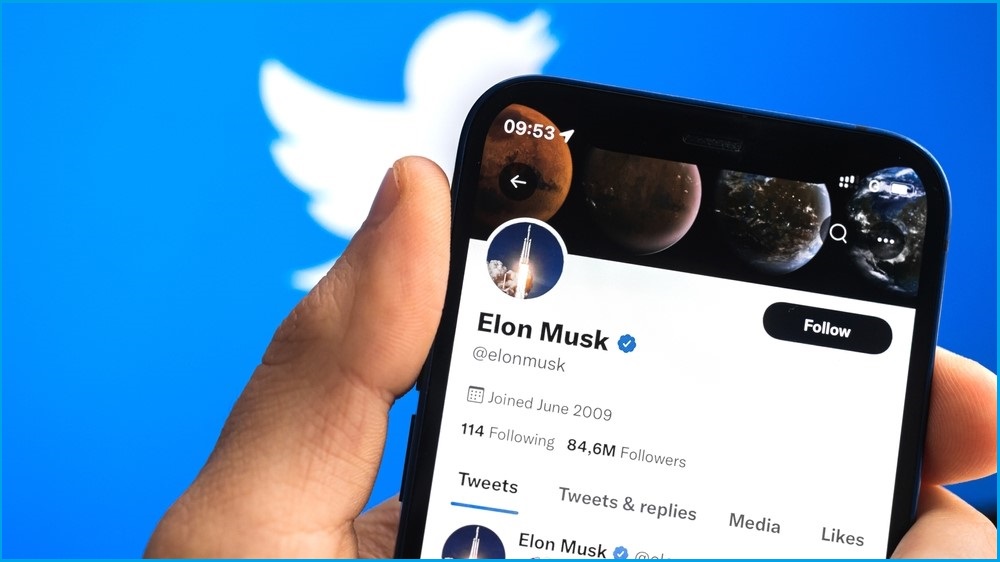Elon Musk will step down as Twitter CEO after losing a high-stakes online poll in which more than 10 million users voted for him to leave the post that he assumed after buying the social media stalwart for $44 billion earlier this year.
Musk – whose impulsive and erratic behaviour as CEO has led to concerns amongst advertisers and sent users looking for alternatives – posted a poll on 19 December saying that he would “abide by the results of the poll” and warning soon after that “be careful what you wish, as you might get it”.
The poll – which came shortly after Musk promised that “going forward, there will be a vote for major policy changes” – attracted 17.5 million votes by the time it was complete, with 57.5 per cent agreeing that Musk’s time as CEO was over.
The normally logorrhoeic Musk went silent for several days, finally tweeting that he would resign as CEO “as soon as I find someone foolish enough to take the job!”
Musk will then focus his attention on the software and servers teams within Twitter, focusing his attention on technical detail – and leaving the day-to-day running of the company to a yet-undetermined candidate whose role will include restoring Twitter’s tarnished reputation, and managing Musk’s brash, impulsive management style.
“Evolution takes the original product far from its origin, with an uncertain outcome,” Musk tweeted the day before the poll in an allegory to the many changes he has made to the platform this year.
His controversial Twitter Blue membership program – which was relaunched this month after a rocky introduction and is giving paying subscribers more clout – has crystallised concerns about verification of users on the service.
Musk also attracted the ire of no less than the United Nations after banning a group of journalists for linking to publicly available data tracking the movements of his private jet – a touchy subject for the world’s richest man.
The journalist ban was reversed in another poll that went against Musk by a similar split to his CEO poll, suggesting that the company’s user base is consistently polarised for or against his style.
Musk’s series of Twitter fiascos has had other consequences, with some major Tesla shareholders pushing for change at the top of that company – whose share price has dropped dramatically this year – amidst claims that a distracted Musk has left the automotive giant with “no working CEO”.
Tesla shares climbed after Musk’s announcement that he will step down as CEO of Twitter, presumably giving him more time to focus on reinvigorating the car maker.
A tumultuous history at the top
Despite his high profile and diverse portfolio, Musk has had a string of problems juggling them all while staying ahead of authorities.
In 2018, he agreed to step down as chairman of Tesla in a securities fraud settlement stemming from his use of Twitter to broadcast commercially sensitive information.
A long-time enthusiast of the platform, Musk became the reluctant CEO of Twitter after this year being forced to complete his $68 billion ($US44 billion) hostile takeover of the company, which he fought for and then subsequently tried to torpedo with claims that the company’s former CEO and board had misrepresented its financial and operational fundamentals.
His sacking of thousands of employees led many to speculate that Twitter’s days were numbered, with entire operational teams disbanded and fears that the site had become a megaphone for far-right commentators taking advantage of Musk’s oft-cited love of ‘free speech’.
Despite Musk’s claims that “Twitter usage (by real humans) [has] once again reache[d] all-time highs,” many spooked users have been heading for the exits.
Alternative networks – including Mastodon, Hive Social, and Post – have seen a surge in users in recent months, causing a brief Mastodon meltdown and recently causing analysts to predict that Musk’s changes and erratic behaviour could drive 32 million users away from Twitter in the next two years.
With many of Twitter’s most active users already leaving, the company recently announced – then quickly walked back from – a new policy banning users from promoting their content on a range of alternative social networks, including Mastodon, Facebook, Instagram, and Donald Trump’s Truth Social.










